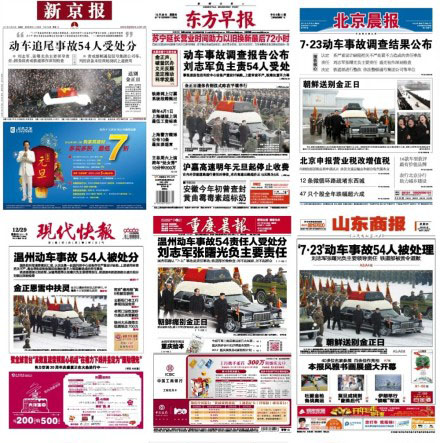Posted November 28th, 2011 at 10:40 pm (UTC+0)

tuilove.com is one forum used by Chinese women looking for men to date and marry.
In the west, the age of marriageability is far higher than in China. But in China, women who have reached their late 20s are considered “leftover.”
“Leftover women” (剩女) is an often negative term indicating more mature Chinese women who are no longer on the marriage market. In China, marriage is seen as an act of duty to honor parents, and those who are left unmarried can carry a huge burden.
The Baidu Baike entry on “leftover women,” from the popular search engine’s wiki-style entry, holds this common perception:
Leftover women always think they are excellent, and they have high goals for partners: They have to be good looking, talented, highly educated and a good person. [They are] often financially and geographically picky, and so that’s a narrow field to choose from.
Wang Chuan (王川) a man who manages the “snap a photo and rescue mature women” (随手拍解救大龄女青年) Sina microblog, which now has more than 90,000 followers.
The premise is to send a picture of yourself to the owner of the blog, and he will send our your basic information like age, occupation, city and hobbies to his many followers. It is then hoped that the “leftover woman” can pick from the best eligible men.
I caught up with the owner of the microblog, who told me how it all began.
“I simply started the blog after hearing about well-known sociology professor Yu Jianrong (于建嵘)’s microblog “Take a snap and rescue a begger kid” (随手拍照解救乞讨儿). I wanted to play on that meme. I took away one character, and instead I wanted ‘beautiful girl’ where ‘kid’ was, but that sounded silly so I used ‘mature women,’ because that way they would need rescuing. I didn’t expect so many followers when I first opened the account. I’m interested in social problems, and was looking for one when I encountered the leftover women problem,” he said.
Eden Zhao, 26, and a media professional, told me she considers herself a mature unmarried woman. When I asked if she felt pressure because of her age, she said, “Although I don’t mind not being in a long-term relationship, I do feel the pressure from my family, especially my mum, who asks me [about dates] every time … she calls me, like whether I’ve dated some guys, who is the guy, what did we talked about during the date, etc.”
As for the label of the leftover woman, which is often considered negative, I wondered what she thought about having it applied to her.
“I’m not strongly resistant to the word itself, but I don’t like the biased feeling people usually hold toward you when when they refer you as a leftover woman. In fact, I believe some woman are “left” simply because they are brilliant enough to overshadow [potential partners]. Some of my female friends are pretty looking, working hard as well as smart, but being excellent does not necessarily mean you can secure a lover,” she said.
The feeling of bias is not uncommon, but the Chinese Internet is full of well visited pages for the so-called “leftover women”.
For example, the popular PCLady forum gives tips to tame your man and a diagnosis for your personality. Other forums dedicated to older, unmarried women include the Baidu Postbar and Tuilove.com.
Obviously, many of these women are looking. But in a climate where many people don’t seem to believe that marriage can last, and where people judge you if you are divorced, it seems better for a lot of women not to take a chance.












